
Is Your Community Association Prepared for the 2021 Hurricane Season?
Published June 2021
Editor’s Note: Well, the good news is you won’t have to reference the Greek alphabet in 2021. The National Hurricane Center decided using Greek names was confusing and dropped them. Tropical Storm Risk (www.tropicalstormrisk.com) provided an extended range forecast on December 9, 2020, that said the 2021 season will most likely not be as active as the 2020 hurricane season. Long-range predictions say there will be approximately 16 tropical storms, with seven of those strengthening into hurricanes and three of those becoming intense hurricanes at a category 3 or higher. To stay up to date on hurricane season predictions, the first forecasts for the 2021 Atlantic hurricane season were issued on April 9, 2021.
 Disaster Preparedness Starts with Your Tech Stack
Disaster Preparedness Starts with Your Tech Stack
By Beth Gilbert, Senior Director
It’s both critical and challenging to keep your operations moving in times of disruption, but having your business on a solid tech foundation can be your saving grace. Here are three ways to prepare using your tech stack:
Leverage the Cloud: Avoid the possibility of hardware failures, damaged servers, and destroyed data by embracing cloud-based technology. Cloud-based software ensures that your data is safe and secure and available everywhere on any device.
Establish Remote Plans: Even if your standard policies require personnel to work in the office, ensure that your software has the capabilities to allow your team to effectively work remotely if it becomes necessary.
Visibility into the Same Data: In times of uncertainty, you want to have a pulse on your business at all times. Utilize technology that provides instant access to real-time data from anywhere, allowing you to work as if you were in the office.
For more information on AppFolio, call (866) 648-1536 or visit appfolio.com/associations.
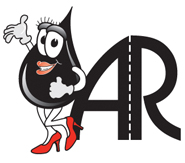 After the Storm
After the Storm
By Connie Lorenz, President
Stay calm! I know it’s going to be hard to do with your residents pulling you in 50 directions as their needs are more important than your first cup of coffee, but they are looking to you for direction, and you running down the road will not be the solution!
When addressing damage after the storm, remember to work from the top down and the bottom up before addressing any issues with your parking lots or roadways. Don’t get me wrong; if a tree was uprooted and took out the roadway, then make sure safe passage is available first! Addressing your issues in any order outside of top down, bottom up will cause damage to your asphalt projects and defeat the point of having them completed first!
The best way to eat a shark is one bite at a time, and prioritizing your issues before investing in them will be the only way to not throw good money after bad. Stay safe and make sure to drive the zone!
For more information on Asphalt Restoration Technology Systems, call (800) 254-4PDC (4732) or visit AsphaltNews.com.
 Beware of Unscrupulous Contractors
Beware of Unscrupulous Contractors
By Keith F. Backer, Esq., Managing Partner
As South Florida enters another hurricane season, prudent boards of directors prepare how their association will function should a storm strike.
Following a storm, unscrupulous vendors often try to take advantage of communities’ needs for immediate cleanup. There are contractors who travel to condominiums and homeowners associations, asking management and directors to sign contracts on the spot to make repairs and perform cleanup services. Of course, rapid repairs and cleanup are important, and many vendors offer services at a fair price, but some propose onerous agreements that contain terms detrimental to the association. Some may even be unlicensed and lack insurance. If you do not have the cell phone number of your lawyer, now is the time to ask for it.
Those of us who were in South Florida during serious weather events of the past remember how difficult it was for many communities to get a quorum of their boards together when telephone and internet services were not working. Both the HOA Act (720.316) and the Condominium Act (718.1265) provide procedures for boards to be able to function under emergency conditions. Obtaining copies of these sections and becoming familiar with them before a storm strikes may make coping with the aftermath just a little less stressful.
For more information on Backer, Aboud, Poliakoff & Foelster, contact Keith Backer at www.BAPFLAW.com or call (800) 251-3562.
 Is Your Association Ready for a Hurricane?
Is Your Association Ready for a Hurricane?
By Dan Tiernan, COO
Being fully prepared for hurricane season is not a simple task. As we enter into the season, you need to double-check and make sure that your community is fully prepared.
- Do you have a written PLAN? This is where it all starts. Many of us are familiar with the saying, “If we fail to plan, we plan to fail.”
- Have you PREPARED for the season? Once you have the plan, you must execute it. Trim all trees, check each generator (fuel included), verify supplies, and inspect each drainage system for any potential blocks. Don’t forget to make sure all key vendors are prepared, too.
- Do you know what to do immediately BEFORE the storm? What items need to be secured and who needs to do it? Do hurricane shutters need to be deployed? How do you communicate this information with residents?
- How do you operate DURING the storm? What are the responsibilities of the board, staff, and owners during the storm? What should people expect? Should owners be advised on what foods and/or supplies they should stock up on?
- What do you do AFTER the storm? How do you contact your key vendors in case of issues? Have you established a response/priority level? How, when, and what do you communicate with owners?
Dan Tiernan is COO with Campbell Property Management. For more information, call (954) 427-8770 or visit www.CampbellMGT.com.
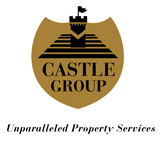 Hurricanes and Pandemics and Active Shooters, OH MY!
Hurricanes and Pandemics and Active Shooters, OH MY!
By Gianna (deCastro) Rahmani, LCAM, PCAM
From natural phenomena to acts of terror, you must remain calm. While easier said than done, your ability to stay cool under pressure depends on the amount of preparation you’ve put in.
The key to disaster preparedness is having a plan that includes steps to take before disaster strikes, evacuation routes, resources for supplies and information, communication methods, risk assessments, cleanup, etc. Identify your emergency response team who can help you through the disaster from rescue and recovery to redevelopment and continuity when the “storm” passes. Once you have a comprehensive plan that covers acts of God to acts of man and one that is customized to your community, you and your team should train and hold drills often.
There truly is no place like home, and with the help of your community management company, your disaster preparedness plan and emergency response procedures will help protect your most valuable assets.
For more information about Castle Group, call (800) 337-5850 or visit www.castlegroup.com.
 Disaster Preparedness Plans—What to Do When Things Don’t Go According to the Plan!
Disaster Preparedness Plans—What to Do When Things Don’t Go According to the Plan!
By Steven Gudewicz, Business Development Officer
Disaster preparedness. We’ve all heard the term and seen its many different forms, flow charts, systems, and plans. Does all this really prepare us for what’s to come once disaster strikes, and what can you do when things don’t go according to plan?
A fire can be an isolated incident, but a hurricane affects entire communities. In the days following a hurricane, insurance companies are getting flooded with phone calls, contractors are preparing for the long days ahead, and owners are wondering what’s next.
Does your disaster plan include contingencies? What will you do if insurance funds are taking longer than expected? Have you discussed with your contractor payment terms in lieu of insurance proceeds?
Associations have options to cover potential financial challenges. Gaining access to funds to pay your contractor and keeping him on site while waiting for insurance to pay your claim are issues a board may need to consider. Don’t wait until the last minute. Have a conversation with your banker before disaster strikes.
For more information on Centennial Bank, call (866) 227-0441 or visit my100bank.com.
 Is Your Community Association Bank Prepared?
Is Your Community Association Bank Prepared?
By Luis Alicea, VP|Regional Account Executive
Hurricane preparedness is a way of life for us here in Florida. Property managers and board members understand the importance of business continuity after a hurricane and lean on their business partners to help them.
Financial preparedness is also an essential part of a disaster plan. Having the right community association banking partner can ensure that you have access to your funds, line of credit, or a loan if needed.
Here are some questions to consider when choosing the right community association banking partner:
- Does the bank specialize in community association banking? Not all banks have expertise with community associations and can understand your unique needs.
- What digital capabilities does the bank offer?
- Does the bank have headquarters or locations outside of hurricane-prone areas?
- Does the bank have a business disruption plan that complements your association needs?
Member FDIC. Equal Housing Lender. Learn more about CIT’s Community Association Banking division at www.cit.com/commercial/solutions/community-association-banking.
 Helpful Tips After a Hurricane Hits
Helpful Tips After a Hurricane Hits
By Dania S. Fernandez, Esq.
After a hurricane passes, the real work begins. Because of this, we always encourage our associations to have a pre-landfall checklist.
-
- Exercise caution when signing contracts for emergency repairs.
- Notify your insurance agent promptly of any claim for property damage caused by the storm winds and rain.
- Have an expert inspect the windows, railings, and doors. A broken window or fallen railing is not the only sign of damage. An expert can determine the building’s stability.
- Safety and mitigating damages are the key. Remove debris, tarp the leaking roof, and board up windows. Keep your community safe and away from further damage.
- Most importantly, hire the right professionals to represent your association. The insurance company is unlikely to identify all the damage caused by the storm.
The law offices of Dania S. Fernandez & Associates are available to help prepare a customized plan for your association.
For more information about Dania S. Fernandez, call (305) 254-4492, email dania@dsfpa.com, or visit www.daniafernandez.com.
 Hurricanes Are a Fact of Life
Hurricanes Are a Fact of Life
By Ed Williams, RRC, Owner
Strong storms and hurricanes are a fact of life in Florida. Just last week, strong thunderstorms in Martin and Palm Beach counties had winds of 60 to 70 miles an hour. Hail was included as well. If you have had a new roof installed in the last few years, it was probably designed for winds well over 100 miles an hour, depending on where you are in the state. High winds try to lift the roof and will find its weak point. High winds can also bring flying debris, which can puncture the roof. Then there is hail, and it can also puncture the roof.
This is the reason that the roof should be inspected after any significant weather event. A small puncture or a small area that is lifted will quickly grow into much larger problems. Remember, just because you don’t have a leak, it doesn’t mean that your roof is not damaged.
For more information, visit EdWilliamsRegisteredRoofConsultant.com or call (772) 335-5832.
 Prepare Points of Entry
Prepare Points of Entry
By Brie Shouppe, Manager of Business Development & Marketing
In any disaster, safety is top of mind for our families and ourselves. Associations have the added responsibility of addressing an entire community’s security. Preparation is key, especially when it comes to points of entry.
Gated properties should know that natural disasters frequently affect them. Standard code requires most gates to “fail open” if power is lost. Prior to this happening, communities can consider locking the gates. In doing so they can secure the gates to prevent further damage in a strong storm while easing traffic in the event of an evacuation.
Other points of access may also be impacted, and you should talk with your access control provider to find out if amenities or assets will lock when the power goes out. Just like gates, it may be helpful to take action ahead of time and lock access to prevent unauthorized use of an area for a period of time.
For more information on Envera Systems, call (855) 380-1274 or visit www.EnveraSystems.com.
 Preparing for the Repercussions
Preparing for the Repercussions
By Anastasia Kolodzik, Vice President, and David Kolodzik, President
In this time of uncertainty and new social protocol, associations are faced with not only the onset of preparing for storm season but also the possibility of delinquencies in assessments from unemployed owners and possible insurance claims from hurricanes with cleanup costs. There are three ways you can tailor your reserve study to reduce the impact of these unforeseen tragedies: include an insurance deductible, a hurricane cleanup allowance, and a contingency percentage for high-ticket components (such as paint, roof, and pavement). The insurance deductible can assist owners in the event of a disaster and reduce possible special assessments. This can go hand in hand with an allowance for hurricane cleanup, which is usually not covered under an association’s insurance policy. Contingency percentages on major components will “cushion” the delinquencies brought on by unemployed owners and foreclosures. As we move forward in the wake of the beginning of this year, proactive funding is a height of necessity.
For more information on Expert Inspectors, call (866) 480-8236 or visit www.flinsurancevaluations.com.
 Unexpected Consequence of Storm Damage
Unexpected Consequence of Storm Damage
By John Greenwood, Technical Consultant
The frequent storms and increasingly frequent hurricanes in Florida can cause widespread damage to buildings (particularly roofs). Among the other problems this damage presents to home owners and property managers is one that very few people would immediately consider—bat colony infestation.
Florida bats are all of the suborder of the species microchiroptera. They are micro-bats. For example, the Mexican/Brazilian free-tailed bat (the most common and numerous of the species) measures only about 1 ½-inches in length and weighs less than half an ounce. Originally, these bats inhabited crevices and caves in the Brazilian rain forest, but in Florida—where we have no caves—they have adapted to living in our buildings by entering small gaps in the structure.
Resulting damage from a storm can present these animals with many more opportunities to gain entry to our homes. If you suspect you may have a bat problem following the storm, call us for a free inspection.
John Greenwood is the technical consultant for Friends of Bats. Call 1-888-758-BATS (2287), email fob@friendsofbats.com, or visit www.friendsofbats.com.
 Workshop Your Community’s Disaster Preparedness Plan
Workshop Your Community’s Disaster Preparedness Plan
By Jonathan S. Goldstein, Partner
At Haber Law, P.A., we recommend not only that community associations adopt and regularly update a disaster preparedness plan in advance, but also that it be openly workshopped (at least annually but preferably more frequently), with vendor and member involvement. Involving vendors provides the benefit of their insight in the planning phase, which they will often freely provide in this context, and can secure their availability, negotiated contractual terms, buy- in, and involvement with the plan in advance. Work-shopping the plan openly in front of members provides an opportunity to educate the membership.
Workshopping can run the gamut of disaster preparedness, from insurance to property condition, to records and data preservation, operational continuity, state of emergency pre-loss and post-loss checklists, vendor contracts, etc. While workshopping should occur well in advance of hurricane season, the aftermath of a disaster is an important time to apply lessons learned and actively manage post-loss plan implementation. Workshopping efforts will result in a robust and regularly updated emergency plan that isn’t taken for granted year after year as well as provide minutes and resolutions documenting the exercise of reasonable disaster preparedness business judgment.
This article is for informational purposes and is not intended to be and should not be taken as legal advice.
Jonathan S. Goldstein is a partner at Haber Law. He can be reached at (305) 379-2400 or jgoldstein@haber.law.
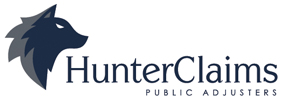 Storm Season in Florida Is Approaching
Storm Season in Florida Is Approaching
By Richard S. Hunter III, Principal Adjuster and President
Storm season in Florida is approaching! Has your association board reviewed its policy to ensure the proper coverage is in place with the correct applicable deductible? Have you recently had your property and life-safety components inspected? Do you have an action plan prepared in the event that a storm hits? If not, the board is at potential risk as a fiduciary when a storm damages a property and proper precautions have not been put into place.
A professional public adjusting company will be experienced in preparing and presenting property damage claims to insurance companies and will have significant experience in evaluating coverage and determining shortfalls in coverage, based on prior claim denials or underpayments. If you or the board of your association would like a professional analysis of your coverage or a pre-storm evaluation of your property, call or email Hunter Claims today!
To learn more about Hunter Claims, call (813) 774-7634 or send an email to richard@hunterclaims.com today.
 Disaster Tips
Disaster Tips
By Jeff Rembaum, Esq., Partner
When disaster strikes, it is next to impossible to be over-prepared. Associations can prepare by having a few simple items to help with the administration of the community after the disaster strikes. Recommended are walkie-talkies, a pen and paper, and a disposable digital camera. The walkie-talkies are to help facilitate communication among board members after their cell phones no longer work because either the cell towers are not operable or there’s no power to charge the cell phone. The pen and paper are to take contemporaneous notes regarding decisions having to be made on the spot. The camera will capture pictures, which speak a thousand words. No doubt, after the disaster members of the community will want to know why their monies were spent, and the photos will help facilitate their understanding. In addition, each board member should have a list of all members and vendors with their contact information. Also, be sure to have your association’s insurance agent and insurance company’s’ contact information as well as that of any lender with whom the association has a line of credit for emergencies.
For more information on Kaye Bender Rembaum, call (800) 974-0680 or visit KBRLegal.com.
 Security Tips for Disaster Preparedness
Security Tips for Disaster Preparedness
By Kent Services
In Florida we often theorize disasters as being hurricanes. However, properties do experience fires, active shooter events, thunderstorms with power out-ages, tornadoes, and COVID-19 related issues. If the property’s plan for dealing with disasters includes the security team, there are steps that should be taken to ensure success.
Open and honest communication between the property management and security management is the key to successful disaster coverage. Property management and associations should understand exactly what the security provider can provide in the event of a disaster. The preferred method is to cover disasters within the language of the agreement and the scope of work or post orders. Discuss and agree upon the bill rates and coverage levels needed for specified disasters as well as any equipment needed. This will ensure that all parties know their role and activate the plan to mitigate further risk or damage.
For more information about Kent Services, email info@kentservices.com or call (305) 919-9400.
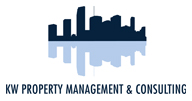 Is Your Community Ready for an Active Hurricane Season?
Is Your Community Ready for an Active Hurricane Season?
By Tim O’Keefe, Executive Director
Experts predict an active hurricane season, following a record-setting 2020. For community managers and board members, proactive communication and preparation are critically important.
First, managers and board members should review all hurricane procedures to ensure that the proper preparation for shutting down equipment and evacuation orders are approved. We recommend confirming the availability of key vendors including landscaping, air conditioning, elevator, and water damage restoration companies. Once the hurricane passes, communicating the impact of the storm and condition of the property to owners is vitally important. Many owners are snowbirds, but their absence does not make them less interested in the impact a storm can have on their Florida home.
Key financial preparation might include funding reserves or creating a special reserve to cover insurance deductibles, pursuing a line of credit, reviewing existing insurance policies and coverage, and taking photos and video of common areas.
Strong communication and a robust plan will have your community thoroughly prepared for a potentially busy hurricane season.
For more information on KW PROPERTY MANAGEMENT & CONSULTING, contact Tim O’Keefe at (786) 910-4226 or tokeefe@kwpmc.com, or visit www.kwpmc.com.
 Maintaining Community Stormwater Systems Key for Disaster Preparedness Plan
Maintaining Community Stormwater Systems Key for Disaster Preparedness Plan
By Chad Bass, General Manager
When it comes to safeguarding Florida communities, frequently situations that are not in plain sight must be monitored. As hurricane season approaches, it’s important to put a disaster preparedness plan in place.
This starts with analyzing the community’s stormwater systems, an interconnected network of ponds, pipes, and overflow structures that prevent flooding. These systems are responsible for conveying stormwater runoff away from homes, streets, and parking lots. If they become clogged with grass clippings, sediment, or algae, community neighborhoods and homes are likely to flood. Ensuring these structures are clean should be part of an ongoing stormwater system management program to avoid catastrophic consequences. Following are some signs that the drainage systems aren’t working properly:
- Water settling on streets longer than usual following heavy rains
- Slow water flow into stormwater drains
- Higher water levels in waterways over a long period of time
- Holes/depressions near ponds, banks, or stormwater structures
The bottom line is that water will always go somewhere. If your stormwater system is not properly maintained and serviced, the result could be devastating flooding and severe shoreline erosion.
Founded in 1992, Lake & Wetland Management is a full-service environmental resource management company with 12 offices throughout Florida. For more information, visit www.lakeandwetland.com.
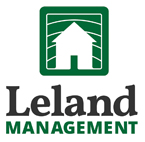 Do the Simple Tasks Now
Do the Simple Tasks Now
By Greg Ashworth, Vice President
Disasters can strike at any moment, and they present themselves in many different forms. From hurricanes to fires and tornadoes to floods, these devastating events impact our lives, usually with limited notice to prepare. So, it is never too early to review, retool, and possibly revise your disaster response plans and emergency preparedness kits. As community leaders, it is important to keep residents informed to ensure that they are familiar with response plans and the resources that are available before, during, or after a disaster.
Don’t wait! Take the opportunity now to do some of the simple tasks that make dealing with disasters a little easier. Some examples include changing batteries in smoke detectors and advertising proper escape routes for events involving a fire. Be sure that supplies are stocked and on hand for first aid. Also, check with your insurance agents to make sure that all policies are up to date, and be aware of any exclusions.
For more information on Leland Management, visit www.lelandmanagement.com.
 Are You Ready?
Are You Ready?
By Linda Johnson, CAM, Owner
As we approach hurricane season, are your policies in place to cover your belongings and property—an HO-6 policy for condominium owners, a homeowners policy for houses, and a windstorm policy for the buildings? Have a digital copy and a physical copy for your records.
Have you done an inspection and taken pictures of the property prior to the hurricane season starting? This will help you document before and after the storm for the insurance claim.
Do you have a plan in place if you need to leave your house? Have you registered your pet with a nearby shelter? Looking up the nearby shelter and requirements is a good step before the season. Have your emergency contact information updated with the association and management company.
Have you checked the shutters to make sure the supplies to put them up are readily available?
Make a box with hurricane supplies, such as tarps, tape, flashlight, portable battery radio, first aid kit, and anything else you might need if there is no power for some time. Keep important documents in this waterproof box also.
Keep safe and alert throughout the disaster.
For more information on LJ Services Group, call (305) 531-2090 or visit www.ljservicesgroup.com.
 Prevent Issues Before They Occur
Prevent Issues Before They Occur
By Joel Leffler, Vice President
The goal of private security in condominiums, HOAs, and rental properties is to prevent issues before they occur. In addition to the security team making rounds and being aware, residents can keep the following suggestions in mind to help maintain their safety at home:
- Lock your vehicle every night and keep all personal property indoors. This includes your keys/fobs.
- Keep garage doors closed and locked to avoid access to your residence.
- Install an alarm system on your house and use it.
- Keep all doors to your residence locked, even while inside and outside your residence.
- Put jewelry and valuables in a locked safe.
- Keep blinds/curtains closed at night.
- While away on vacation implement the following:
- Ask a neighbor to keep an eye on your house.
- Notify the alarm company.
- Request the Postal Service hold your mail until you return and do the same for newspaper subscriptions.
- Set timers on lights so it appears the home is occupied.
Residents and a highly trained, customer service-oriented Marksman Security officer can cover all the bases of your safety and security program.
For more information about Marksman Security Corporation, call (954) 592-7711 or email joel@marksmansecurity.com.
 Safety Considerations When Choosing Roof Coverings That Weather the Storm
Safety Considerations When Choosing Roof Coverings That Weather the Storm
By Palram Americas
When planning roof covering improvements in your community, it’s important to consider the durability and safety factors of the available solutions. Coverings need to withstand the Florida elements—heavy winds, rain, hail, and harmful UV rays—year after year.
Architectural polycarbonate panel systems not only offer significantly improved safety in a storm event but also lend the elegance and beauty of glass-like detail to homes and common spaces. These systems feature polycarbonate panels which provide 20 times the impact resistance of tempered glass. So when a storm occurs, you don’t have to worry about the possibility and danger of shattered glass (and the considerable expense to replace it). A fully designed system integrates panels and profiles into a lightweight, watertight, UV-protected system. Choosing a system that has successfully gone through the Miami Dade approval process ensures worry-free maintenance for years to come.
For more information on architectural polycarbonate panel systems, contact Palram Americas at (610) 285-9918 or projects.usa@palram.com.
 Making Sure Your Community Is Prepared for the Unexpected
Making Sure Your Community Is Prepared for the Unexpected
By Mariann Gerwig, CGC, HI, CFCAM
Just how can you accomplish this if the definition of unexpected is “something that was not planned or anticipated”? The development of an emergency team or committee in charge of creating procedures that can easily and quickly be revised to fit many situations may be an attainable goal.
Some important steps, like the following, can be taken:
- Attend free classes offered by most local, state, and federal municipalities to their residents, to help the residents be prepared and protected during emergencies and best prepared to recover.
- Have annual meetings that include building management, employees, tenants, and guests on how to be organized and resilient in the face of disaster. Have written copies to give to all the attendees.
- Review evacuation procedures and implement drills and help ensure success every time.
- Utilize mass notification systems to create concise messaging to all necessary parties.
- Maintain current building conditions and surveys that will help if there is a need to submit an insurance claim.
- Create a pre-approved vendor list with a clause that your building will be included on a priority list for repairs by having a current agreement with each vendor.
- Have a proper means of backing up all electronic records regularly. Paper records should be kept in weather and fireproof cabinets.
For more information on Promar Building Services LLC, email Mgerwig@Promarbuilding.com or visit promarbuilding.com.
 When Disaster Hits, Get Your Community Internet Up and Running Fast with QXC + FirstNet Response
When Disaster Hits, Get Your Community Internet Up and Running Fast with QXC + FirstNet Response
By John Von Stein, CEO
Imagine a hurricane strikes, the storm moves on, and you’re left to manage the aftermath with no internet connectivity. Natural disasters will happen; it’s a matter of when, not if. Formulating a plan to manage essential services, like restoring your community’s internet, is a must.
QXC offers unmatched emergency preparedness. FirstNet enables public safety partners—like QXC—to get the priority, coverage, and interoperability needed during an emergency to keep customers connected.
An example of that QXC FirstNet advantage: During the pandemic, a prominent New York-based trading firm relocated to a South Florida hotel property. The firm required significant bandwidth to conduct trades—and they needed it quick.
As a FirstNet provider, QXC pulled permits and installed the circuit within three days, enabling the hotel’s ballroom to be transformed into a stock exchange trading floor. The fast response and expert engineering saved our client time and money by keeping the firm online, even in the midst of a pandemic. Imagine what QXC can do for your community.
John Von Stein is CEO of Boca Raton-based QXC Communications. For more information, connect with him at (561) 708-1500 or sales@qxc.us or visit QXC online at www.qxc.us.
 Disaster Management and Claim Management
Disaster Management and Claim Management
By Eugenie Grasser, Marketing Coordinator
Associations with high-value amenities that they reserve funds for should take time each year to review their natural disaster plans and understand the recurring threats presented by large storms and other weather events. The more deliberate you are in initial planning and refining that plan each year, the quicker and more efficient you will become in managing the response and ensuing insurance claim process following a catastrophic weather event. One thing that will help tremendously is to contract with a mitigation partner that will document the current state of your assets, provide consultation on preventive maintenance to extend the life of your assets, and prioritize your association for immediate mitigation and documentation in the aftermath of a large storm.
For more information about RealManage, visit realmanage.com.
 The 12 Questions You Need to Ask Your Insurance Agent
The 12 Questions You Need to Ask Your Insurance Agent
By Tina Lewis, Vice President |Orlando Division
Your community’s insurance coverage is one of the most critical issues a board has to deal with. All points of coverage should be reviewed annually to ensure the association is adequately covered in case of a natural disaster or other emergency.
Your insurance agent should be able to answer the following:
- Do we have enough coverage? How is replacement cost determined?
- Do we need a property insurance appraisal?
- Does the policy cover the cost required to upgrade the buildings to code in case of destruction?
- Does it cover debris removal?
- What perils or cause of loss does it cover?
- What is a named peril and what is an open peril?
- Under what condition is water damage covered? What constitutes flood damage?
- What covers loss of landscaping, fencing, screening, exterior building paint, building foundations, walkways, pools, tennis courts, etc?
- What does general liability cover?
- What is property displacement?
- What is ordinance or law exclusion?
- What does the policy require us to do in the event of a loss?
For more information on Sentry Management, call (800) 932-6636 or visit sentrymgt.com.
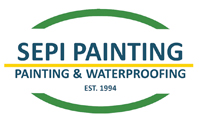 Use a Proven Coating
Use a Proven Coating
By Rick Hernandez, Owner/President
One of the best approaches for community association members to reduce storm flooding and natural disaster losses is by using a proven coating that will windproof and waterproof surfaces in the path of destruction. The Federal Emergency Management Act, or FEMA, recommends waterproofing the ground floor of buildings as a defensive action to protect valuable contents that may be in the path of a natural disaster. The entire outside of a building, including the roof, can be turned weather resistant with the use of coatings. Make sure you select the right green and easy-to-apply coating to ensure that the product will hold up in the event of a storm or flood. This way, a surface that has gaps and seam openings can be turned into a monolithic membrane that will not allow wind or water penetration.
For more information on different types of coatings, visit www.sepipainting.com, call (305) 513-4519, or email info@sepipainting.com.
 Disaster Preparedness Post-COVID-19
Disaster Preparedness Post-COVID-19
By Christyne D. Santisteban, Associate
The COVID-19 pandemic has expanded the parameters and elevated the importance of disaster preparedness for community associations. Prior to the start of the 2021 hurricane season, Florida association boards of directors and property managers should reassess their disaster preparedness plans to ensure they are ready for anything and everything.
Some of the elements of a comprehensive disaster preparedness plan include detailed site plans, especially for large communities; a communications plan with all current contact information for board members and key staff/vendors; and an evacuation plan with information on public shelters as well as local gas stations and grocery stores with backup generators. Insurance information is also a must, and it should always include copies of all policies and claim-filing protocols.
The uncertainty caused by the pandemic also spotlighted the importance of unit-owner communications. Comprehensive disaster preparedness plans should include all current contact info and any other preparations necessary for outreach to residents via calls, text, email, and hand-delivered notices to all dwellings.
Christyne D. Santisteban is a community associations attorney, who is based at the Miami office of Siegfried Rivera, a law firm that focuses on association law and also maintains offices in Broward and Palm Beach counties. Call 1-800-737-1390 or visit www.SiegfriedRivera.com and www.FloridaHOALawyerBlog.com.
 An Ounce of Prevention: Minimizing Hurricane Damage
An Ounce of Prevention: Minimizing Hurricane Damage
By Stephanie Saunders, Director of Marketing and Client Relations
We’ve all heard the old saying, “An ounce of prevention is worth a pound of cure.” This statement aptly describes managing an association’s property before, during, and after a hurricane. As we enter a new hurricane season, keep the following preparation steps in mind:
- Review your association’s insurance policy to have a clear understanding of your coverage. If you have new board members, consider setting up a meeting with your insurance representative so everyone understands the coverage.
- Take detailed photos and videos of the property before the storm and keep them in a safe place. Photos might include common areas, pools, playgrounds, streets/sidewalks, security gates, etc. After a storm, take photos and videos of the damaged areas so the insurance company can easily see the damage vs. how it looked previously.
- Secure any outdoor furniture in outdoor common areas or move furniture indoors to prevent it from becoming a projectile. Remind residents they should move their personal furniture indoors as well.
- Keep copies of receipts for any immediate repairs that are needed. While generally it’s best to avoid making repairs until the insurance adjuster has surveyed the damage, sometimes immediate repairs are necessary if there is a dangerous or potentially dangerous situation.
For more information on successfully working with your insurance company after a disaster, contact UCS at www.usfl.com.
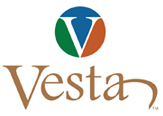 Have a Plan in Place
Have a Plan in Place
By Sebastian Martinez, Administrative Assistant
Whether predicted or unexpected, natural or man-made, disasters can occur without warning, so it is imperative to have a plan in place. Preparation is essential to keeping you safe. In order to ensure communication, it is important to create an emergency plan and make sure it is shared with all residents, employees, and vendors. This emergency plan must be well written and provide specific instructions for hurricanes, fires, and even plumbing leaks.
Having a plan is the first step, but it needs to be effectively communicated to all residents. This information should be posted on a message board and association website, and also mailed, if need be.
Communication is the key to saving lives. Speak to staff, residents, and vendors before, during, and after any kind of catastrophe so they know the association’s emergency plan is in place. A plan will keep your community safe and ready.
For more information on Vesta Property Services, email sales@vestapropertyservices.com, call (877) 988-3782 or visit VestaPropertyServices.com.




